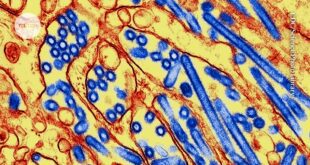Integrated Pest Management Schemes for Seed Potato Crops
The RHASS Presidential Initiative (PI) has developed a series of case studies exploring the science behind food and drink production, with a focus on creating innovative solutions to the climate pressures facing the agricultural sector. The third case study in the series examines how Scottish Agronomy, a farmer-owned cooperative, has been collaborating with growers to develop alternative and more integrated pest management schemes for seed potato crops.
Effective Alternatives to Traditional Insecticides
Scottish Agronomy has been working with farmer Jim Reid of Milton of Mathers Farm to investigate the benefits and practicality of spreading straw mulch and applying mineral oils to the crop canopy as a means of controlling mosaic virus in seed potatoes. By conducting trials alongside a sister trial in Fife, Scottish Agronomy found that using a straw mulch reduced mosaic virus by 49%, while mineral oil led to a 54% reduction. In contrast, using a pyrethroid insecticide actually increased the incidence of mosaic virus.
The Critical Role of Collaboration in Translational Science
Eric Anderson, of Scottish Agronomy, highlights the importance of collaboration between growers and researchers in translating scientific findings into practice. He stresses that scientists need to remain ahead of the agricultural sector in identifying problems and developing solutions. By working collaboratively with growers, researchers can gain a more holistic understanding of the technical problems facing the industry, and create practical solutions. Anderson argues that too often, scientists work in isolation, failing to connect with growers and missing the opportunity to link research with practical applications.
Creating Resilience through Integrated Approaches
Jim Reid notes that the agricultural industry has long relied on chemical insecticides to protect crops without considering the consequences. As aphids become more resistant to pyrethroids, and other products disappear, it is becoming increasingly clear that a more integrated, holistic approach is necessary. Reid argues that by listening to scientific advice and exploring alternative solutions, growers can work towards building a more resilient industry.
Looking to the Future
Ewan Pate, Vice-president of the RHASS PI, points out that in the past, the response to a problem like aphid resistance would have been to seek a chemical solution. However, the sector is now exploring biological and mechanical alternatives, driven by the need to find sustainable and effective solutions to the challenges posed by climate change.
The case study showcases the value of translational science in addressing technical challenges while emphasizing the importance of collaboration between growers and researchers. By working together, the agricultural sector can identify and implement practical solutions to create a more resilient industry.
 Mind Uncharted Explore. Discover. Learn.
Mind Uncharted Explore. Discover. Learn.

